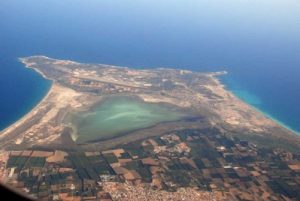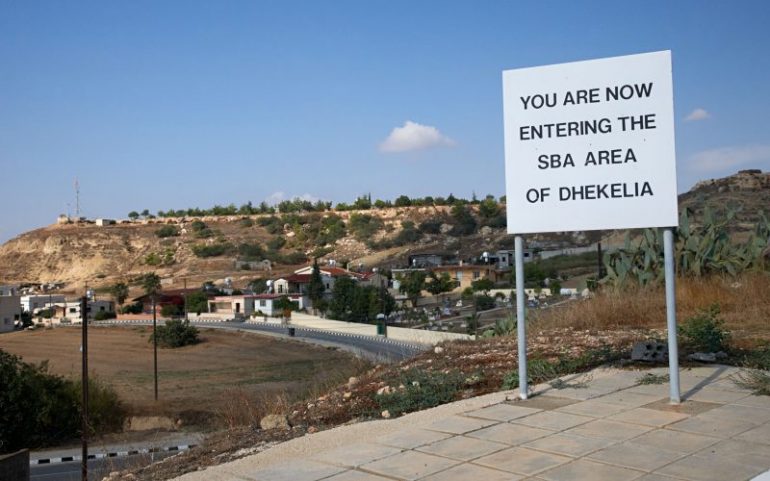The opinion of the International Court of Justice in The Hague regarding the illegality of the British Bases in Mauritius is of exceptional importance.
The Government and the Legal Service, however, are keeping a low profile, pending a thorough analysis of the decision by the Legal Service officials.
One of the lawyers who spoke, among other things, last September in The Hague, was Polys Polyviou, who spoke to SigmaLive yesterday, shortly after the opinion was issued. Mr. Polyviou noted the differences and similarities between the case of Mauritius and Cyprus.
Both Mr. Polyviou and Mr. Clerides stressed in their statements that any claim of Cyprus against Britain, in the aftermath of the opinion, should occur after a political decision. Regarding what and how Cyprus could claim from Britain, after a political decision, Mr. Polyviou Speaking earlier in the morning on state radio, he said that the territory of Dhekelia Bases could be ceded after negotiations. It is noted that the Dhekelia base, in addition to the Republic, also borders the United Nations-controlled fire-fighting zone, as well as Turkish-occupied areas. In total, it has 103 km of land borders, and 27,5 km of coastline.

The geographical location of the base of Dhekelia and the ceasefire line create a pocket in the southeast of the island. The pocket includes Ayia Napa, and the villages of Xylotympos and Ormidia. The Dhekelia Power Station is located partly on PKB territory, and is separated from the bases by a road that divides the station. The station belongs to the Republic, its northern part is also considered a pocket, while the southern part is located on the sea, so it is not formally considered a pocket, although it does not have its own territorial waters.
According to Mr. Polyviou, there could also be a reduction of British territory in the area of Akrotiri Base, an area where many Greek Cypriots live. Part of the area is used as a military base. The Cape Base could also be rented for 50 years in Britain, a development which, like the previous ones, could always take place after political negotiations.
Colonial remnant
Historically, the British Bases on our island can easily be considered as the last remnants of colonialism on European soil. The Cape and Dhekelia Bases, commonly referred to as the Western Sovereign Base (WSBA) and the Eastern Sovereign Base (ESBA), cover an area of 256 sq.km., accounting for 3% of the total Cypriot territory.
It is worth noting that the British Government does not own most of the land, as about 60% is privately owned, about 20% is UK property or leased land and the remaining 20% is administration-owned housing (including forests). , roads, rivers and the Cape).
Legal system and Administration
The British bases maintain their own legal system, separate from that of the United Kingdom and Cyprus, which consists of the laws of the Colony of Cyprus until August 1960, as amended.
The laws are kept as much as possible the same as the laws of Cyprus. The Court of the Sovereign Base Areas deals with the civilian misconduct of any individual within the Bases. Law and order is maintained by the Base Police, while martial law is maintained by the United Police Unit of Cyprus. It is worth noting that the Bases are not commanded by a political commander, but by the current military commander of the British Forces in Cyprus (BFC).
The debtors
In addition, under the Establishment Agreement, the British Government had to pay compensation to the Republic of Cyprus for the use of the British Bases. To date, the Republic of Cyprus has received only the amount of 10 million pounds for the period from 1960 to 1965, under the pretext that the Turkish Cypriots no longer participated in the Government.
Source: SigmaLive
